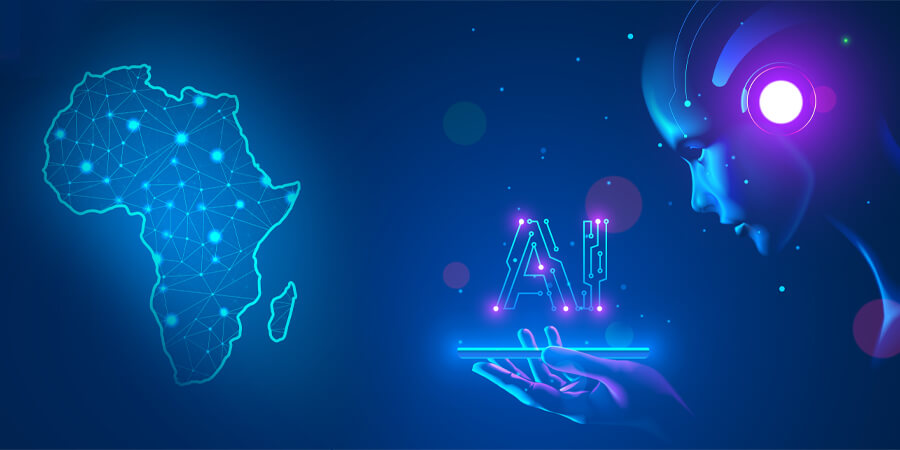The potential for AI in Africa is enormous, and there are many opportunities for the technology to make a positive impact on the continent. While there are certainly challenges to be overcome, the future of AI in Africa looks bright.
One area where AI has the potential to make a significant impact in Africa is in healthcare. With limited resources and infrastructure, many African countries struggle to provide adequate healthcare to their populations. However, AI-powered systems can help bridge this chasm by improving diagnosis and treatment and even by helping to predict and prevent disease outbreaks.
Another area where AI can be particularly useful in Africa is in agriculture. Agriculture is a vital industry for many African countries, and AI can help optimize crop yields, improve irrigation and pest control and even help farmers access markets and financing.
Education is another area where AI can make a significant impact in Africa. With limited access to high-quality education, particularly in rural areas, AI-powered systems can help fill this gap by providing personalized learning experiences and even helping to identify areas where additional support is needed.
One of the most significant challenges to the widespread adoption of AI in Africa is the lack of digital infrastructure in many areas. However, efforts are being made to address this issue, with initiatives such as the Alliance for Affordable Internet and the African Union's Agenda 2063 working to improve internet access across the continent.
There are also concerns about the potential impact of AI on employment in Africa, particularly in industries such as manufacturing and logistics. Still, with the right policies and investments in skills training, there is an opportunity to harness the power of AI to create new jobs and spur economic growth.
Addressing the Challenges
There are several AI challenges facing Africa, including:
- Data scarcity and quality: One of the biggest challenges facing AI in Africa is the lack of data. Many countries in Africa lack the necessary infrastructure and resources to collect, store and analyze data. In addition, the data that is available may be of poor quality, incomplete, or biased, which can make it difficult to develop accurate and effective AI systems.
- Skills and talent gap: There is a shortage of skilled AI professionals in Africa. Many African countries lack the necessary educational programs and training facilities to produce the skilled professionals required to develop and implement AI systems.
- Limited access to technology: Impediments to technology and infrastructure are a significant challenge facing AI in Africa. The high cost of technology, limited internet connectivity and poor infrastructure can all limit the development and implementation of AI systems.
- Lack of funding: There is a lack of funding for AI research and development in Africa. This can make it difficult to attract and retain talent, develop cutting-edge AI systems and compete with other countries in the global AI market.
- Cultural and linguistic diversity: Africa is a continent with significant cultural and linguistic diversity. This can make it challenging to develop AI systems that are effective across different cultures and languages.
Promoting and Developing AI in Africa
There are several AI initiatives and programs currently underway in Africa that aim to develop and promote the use of AI on the continent. Some of these initiatives include:
- AI Research Centers: There are several AI research centers in Africa, such as the African Institute for Mathematical Sciences (AIMS) and the African Robotics Network (AFRON). These research centers focus on developing AI talent in Africa, conducting research and collaborating with local and international organizations to promote the development of AI.
- Education and Training Programs: Several education and training programs have been established in Africa to develop AI talent on the continent. These include programs such as the MSc in Data Science and AI at the University of Ghana, the AI for Development (AI4D) program in Egypt, and the Artificial Intelligence and Data Science (AID) program at the University of Lagos in Nigeria.
- Public-Private Partnerships: There are several public-private partnerships in Africa; these partnerships include the MobiLife project in Kenya, which uses AI to provide healthcare services to remote communities, and the Agricultural and Rural Management Training Institute (ARMTI) in Nigeria, which uses AI to improve agricultural productivity.
- Government Initiatives: Several African governments have launched initiatives to promote the development of AI on the continent. For example, the South African government has launched the Artificial Intelligence Strategy, which aims to promote the development of AI in the country, while the Nigerian government has established the National Center for Artificial Intelligence and Robotics to support the development of AI in Nigeria.
In conclusion, the future of AI in Africa is full of promise, with the potential to improve healthcare, agriculture, education and many other areas of society. While there are certainly challenges to be addressed, the benefits of AI for Africa are clear, and with the right investments and policies, the continent can harness the full potential of this powerful technology.
